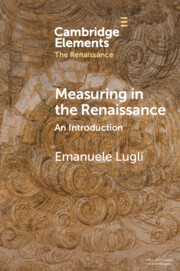Refine search
Actions for selected content:
1 results

Measuring in the Renaissance
- An Introduction
-
- Published online:
- 12 July 2023
- Print publication:
- 03 August 2023
-
- Element
- Export citation
